Brief History of the Department
Sukanta Mahavidyalaya, Dhupguri, Jalpaiguri, West Bengal, is a Government Aided, NAAC accredited higher education institution which started its academic journey on 25 September 1981. Sukanta Mahavidyalaya is affiliated to the University of North Bengal recognized under section 2(f) & 12(B) of UGC Act. It is a co-educational college and the Department of Political Science has been an indispensable department of the college since its inception. Every year a large number of students offer Political Science as one of the subject of their course. Because of the demand of students as well as to fulfil the need of the time, B.A. Honours course of the subject was started in 1995. Since then a number of students have passed B.A with Honours in Political Science from this college. In the same way, a large number of students have graduated with Political Science as a Programme Course subject. The Department presently consists of three permanent faculty members and one SACT.
Vision: The department believes in providing quality education to its students and has a strong commitment for the betterment of the students and the college.
Mission:
Teaching Methods:
The department adopts different teaching methods for students. They are:

Associate Professor
View Profile
Assistant Professor
View Profile
Assistant Professor
View Profile
State Aided College Teacher
View ProfileNOTICE
Department of Political Science
DATE |
SUBJECT |
|---|---|
20th January, 2023 |
NOTICE REGARDING MID-TERM EXAMINATION OF 1ST SEMESTER GE |
6th January, 2023 |
NOTICE |
9th December, 2022 |
NOTICE REGARDING INTERNAL MARKS |
12th November, 2022 |
NOTICE FOR DEPARTMENTAL MEETING |
5th November, 2022 |
NOTICE REGARDING MID-TERM EXAMINATION OF 3RD SEMESTER |
22nd August, 2022 |
NOTICE FOR DEPARTMENTAL MEETING |
10th June, 2022 |
NOTICE FOR DEPARTMENTAL MEETING |
3rd January, 2022 |
NOTICE FOR INTERNAL EXAMINATIONS OF 5th SEMESTER GE |
Course Offered: This Department offers
PROGRAMME OUTCOME
| PO-1 | In-depth knowledge of Indian Political system, Political thinkers, administrative system |
| PO-2 | Take informed actions after identifying the assumptions that frame our thinking and actions, checking out the degree to which these assumptions are accurate and valid, and looking at our ideas and decisions (intellectual, organizational, and personal) from different perspectives. |
| PO-3 | Skills of working collaboratively in teams and plan as well as manage their workload. |
| PO-4 | Awareness of personal strengths and weaknesses. Will have self-reflection and discipline |
| PO-5 | Elicit views of others, mediate disagreements and help reach conclusions in-group settings. |
| PO-6 | Demonstrate empathetic social concern and equity centered national development, and the ability to act with an informed awareness of issues and participate in civic life through volunteering. |
| PO-7 | Recognize different value systems including your own, understand the moral dimensions of your decisions, and accept responsibility for them. |
PROGRAMME SPECIFIC OUTCOME
| PSO-1 | Ability to discuss about Indian Constitution and Political process. |
| PSO-2 | Ability to discuss Political thinking in western world. |
| PSO-3 | Ability to describe Administrative Process and thinking in western thinking, as well as Indian context |
| PSO-4 | Capacity to analyses Political Theory and its contemporary impact on civilization |
COURSE OUTCOME
| Semester-I | ||
| Course Code | Course Name | Course Outcomes |
| Core-101 | UNDERSTANDING POLITICAL SCIENCE | · Understanding the meaning and importance of Political Science. · Understanding the sub-disciplines of Political Science. · Understanding key concepts of political science. · Understanding theories of the State: Social Contract, Idealist, Liberal and Neo-liberal, Anarchist |
| Core-102 | Perspectives on Public Administration | · Explaining the nature, scope of Public Administration; Politics · Discussing the personnel administration · Discussing Financial Administration, budgetary process in India · Critically examining Administrative Thinkers with focus on Henri Fayol, Max Weber |
| Semester-II | ||
| Course Code | Course Name | Course Outcomes |
| Core-203 | INDIAN GOVERNMENT AND POLITICS | · Understanding the making of Indian constitution · Understanding the philosophy of Indian Constitution. · Understanding Fundamental Rights; Fundamental Duties, Directive Principles of State Policy · Understanding critically analyzing legislature, executive and judiciary system of India |
| Core-204 | Western Political Thought | · Define Plato`s thinking, like Ideal State & Philosopher King · Interpret Aristotle`s thought on State, Property, Slavery · Describe Machiavelli`s views on Human Nature, Religion · Describe Karl Marks theorization on Historical Materialism |
| Semester-III | ||
| Course Code | Course Name | Course Outcomes |
| Core-305 | COMPARATIVE POLITICS | · Understanding Comparative Politics: development, nature and scope. · Explaining Major governing principles: Constitutionalism; Conventions; Rule of law; · Understanding and critically analyzing the political system of U.K. · Understanding and critically analyzing the political system of U.S.A. · Understanding and Critically analyzing the political system of China · Understanding and Critically analyzing the political system of Switzerland |
| Core-306 | Public Policy and Administration | · Explaining the nature, scope of Public Policy · Understanding and Critically analyzing Public Policy in India · Understanding and Critically analyzing Citizen and Administration interface · Explaining the nature, scope of Social Welfare Administration and Policies |
| Core-307 | Nationalism In India | · Understanding the Approaches to the Study of Nationalism in India · Understanding Nationalist Politics and Expansion of its Social Base · Explaining the Women’s Question: Participation in the National Movement and its Impact |
| Semester-IV | ||
| Course Code | Course Name | Course Outcomes |
| Core-408 | INTRODUCTION TO INTERNATIONAL RELATIONS | · Understanding Origin and growth of International Relations (IR) – meaning and scope of IR. · Explaining Basic concepts: National Power; National Interest; Balance of Power; Bipolarity · Explaining Major Theories of IR: Realist Theory · Understanding Collective Security: Meaning and Safeguards --Pacific Settlement of International Disputes |
| Core-409 | Political Sociology | · Understanding Political Sociology: Nature and Development · Explaining Social stratification and politics: Class, Elite. Caste in India · Understanding Political culture: Types , Influence , Political socialization: Agencies · Explaining Political development, modernisation and social change: Concepts and Theories |
| Core-410 | Political Theory: Concepts and Debates | · Understanding Importance of Freedom, Negative Freedom: Liberty, Positive Freedom: Freedom as Emancipation and Development · Understanding Significance of Equality, Formal Equality: Equality of opportunity · Understanding Indispensability of Justice, Procedural Justice, Distributive Justice, Global Justice · Explaining the Universality of Rights, Natural Rights, Moral and Legal Rights, Three Generations of Rights |
| Semester-V | ||
| Course Code | Course Name | Course Outcomes |
| Core-511 | Understanding Global Politics | · Explaining evolution of the State System, the concept of Sovereignty · Explaining the Global Economy, Discussing the Bretton Woods Institutions and WTO , Ideological underpinnings , Transnational Economic Actors ,Identity and Culture · Explaining Global Inequalities: Violence: Conflict, War and Terrorism · Explaining Global Environment, Global Civil Society |
| Core-512 | Indian Political Thought | · Understanding Ancient Indian Political Thought: Main Features– Contribution of Kautilya, Medieval Political Thought: Main Features. · Explaining Indian Awakening and birth of Modernity: Rammohun and Syed Ahmed Khan · Explaining Ideas of Nationalism: Bankimchandra, Tilak and Rabindranath · Understanding B. R. Ambedkar: on social justice. |
| Elective-501A | Party System in India | · Knowledge gained: About the ideology and the organization of political parties in India and changing party systems. · Skill gained: To study manifestos, organizations and campaign strategies of different political parties and changing part systems in India · Competency gained: To apply the knowledge in understanding and predicting the role of political parties |
| Elective- 502B | International Organisations | · Knowledge gained : Understanding the contemporary relevance of the UN and its relationship with other IGOs · Skill gained: to contextualize recent international crises and their resolution. · Competency gained: Faculty to represent the country in diplomatic circles, armed with the proper knowledge of international organizations. |
| Semester-VI | ||
| Course Code | Course Name | Course Outcomes |
| Core-613 | India’s Foreign Policy in a Globalised World | · Knowledge gained : About the bases of power and influences of major powers in global politics · Skill gained : Theoretical and practical insight into the foreign policy making of the major powers · Competency gained: To apply the knowledge to predict the trends and the foreign policy decisions of the major powers |
| Core-614 | Political Ideology | · Knowledge gained: Of major modern ideologies and their core assumptions including major ideologues and ideological debates. · Skill gained: To critically engage, understand the contemporary ideologies. · Competency gained: To apply it to understand political realities |
| Elective-603A | India and Her Neighbours | · Understanding the relations of India with neighboring countries. · Evaluating India’s relations with Pakistan, Bangladesh, Nepal and Sri Lanka |
| Elective- 604A | Grass Root Democracy in India | · Knowledge gained : About rural local self-government and administration in India · Competency gained :To apply the knowledge to grass root level situations · Knowledge gained : About urban local self-government and administration in India · Competency gained: To apply the knowledge to grassroots level situations and design alternatives |
Department of Political Science Sukanta Mahavidyalaya
SPECIAL LECTURE
ON
“India at 75: Retrospect and Prospect”
Dated: 18th August, 2022
A special lecture on “India at 75: Retrospect and Prospect” was held on 18th August, 2022. Respected Speaker Professor Ranjita Chakraborty from Department of Political Science under University of North Bengal delivered her valuable lecture on this occasion among the students of Department of Political Science of Sukanta Mahavidyalaya,Dhupguri,Jalpaiguri,W.B. Click Here for Documents

One Day Online Departmental Seminar
On
Makers of Modern India: Raja Rammohan Roy & Syed Ahmed Khan
29th September, 2021
Organized By: Department of Political Science, Sukanta Mahavidyalaya, Dhupguri, Jalpaiguri

One Day Online Departmental Seminar
On
Social Welfare Administration & Protection of Weaker Sections in India
27th September, 2021
Organized By: Department of Political Science, Sukanta Mahavidyalaya, Dhupguri, Jalpaiguri

Online Students’ Seminar for 6th semester CC (Hons ) Students
On
Abrogation of Article 370 and Its Impact on Indo-Pak Relations
10th June, 2021
Organized By: Department of Political Science, Sukanta Mahavidyalaya, Dhupguri, Jalpaiguri

SPECIAL LECTURE
ON
“Democratic and Legal Awareness”
Dated: 6th March, 2020
A special lecture on “Democratic and Legal Awareness” was held on 6th August, 2020. Respected Speaker Shri Subir Karmakar, Inspector-in-Charge, Dhupguri Police Station, delivered his valuable lecture on this occasion among the students of Department of Political Science of Sukanta Mahavidyalaya,Dhupguri,Jalpaiguri,W.B.
National Seminar
On
‘’GENDER EQUALITY, WOMEN EMPOWERMENT AND STATE’’
28th March, 2018
Department of Political Science and Department of Philosophy of Sukanta Mahavidyalaya, Dhupguri, Jalpaiguri, West Bengal organized a One Day National Seminar on “Gender Equality, Women Empowerment and State” on 28th March, 2018 in Seminar Hall in collaboration with Ananda Chandra College, Jalpaiguri. The Seminar focused on the issues related with Gender Equality and Women Empowerment in contemporary India.

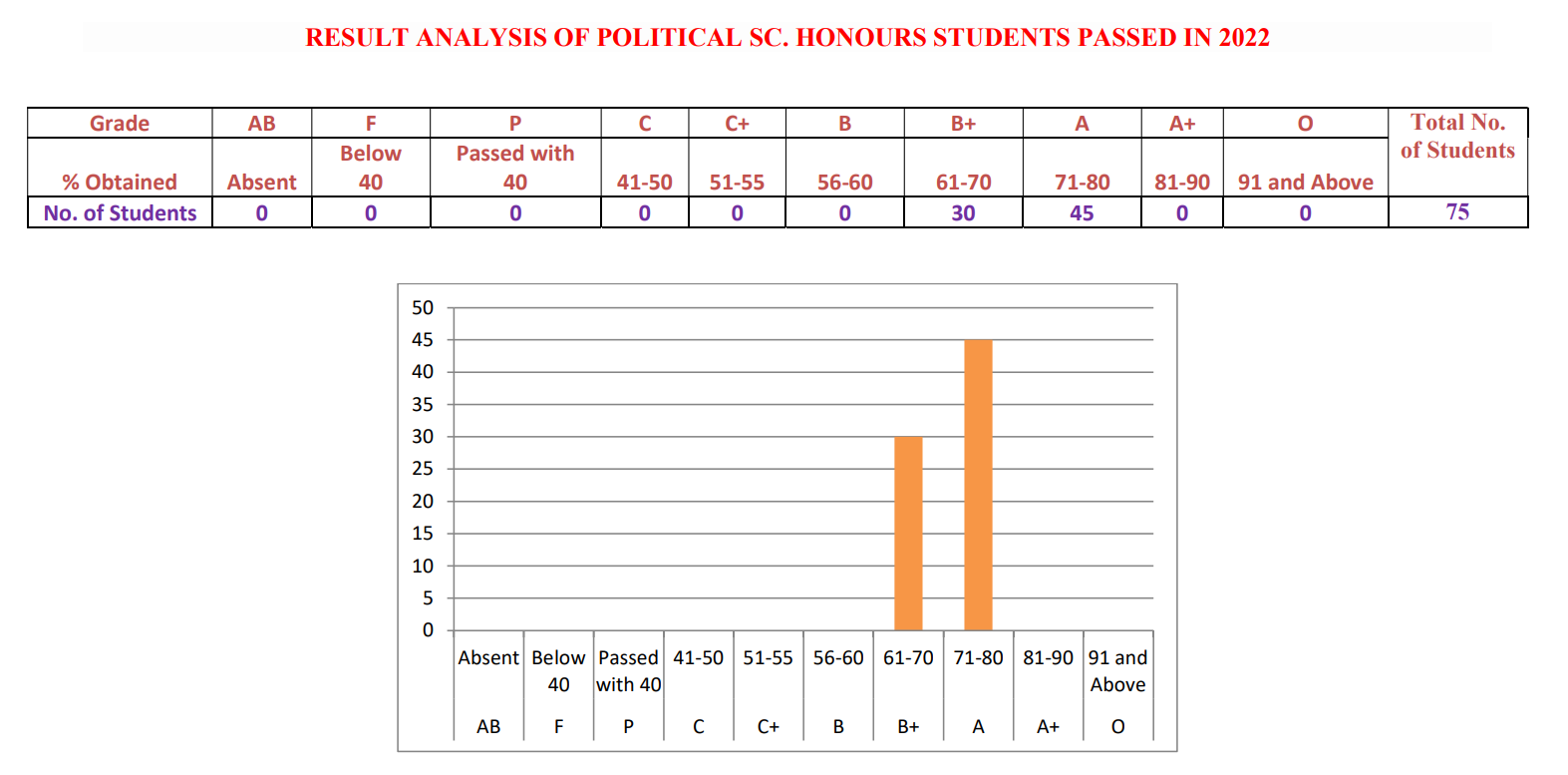
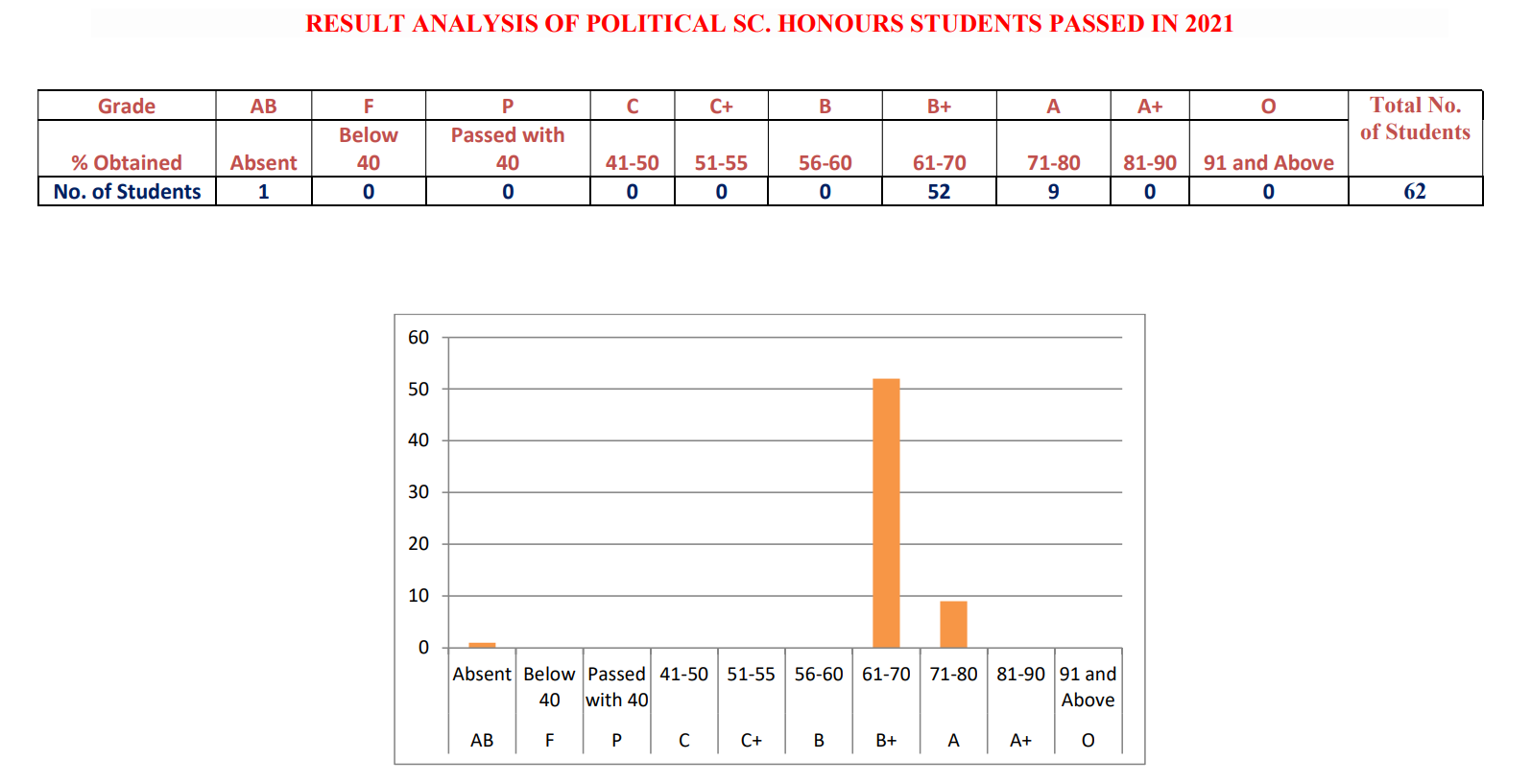
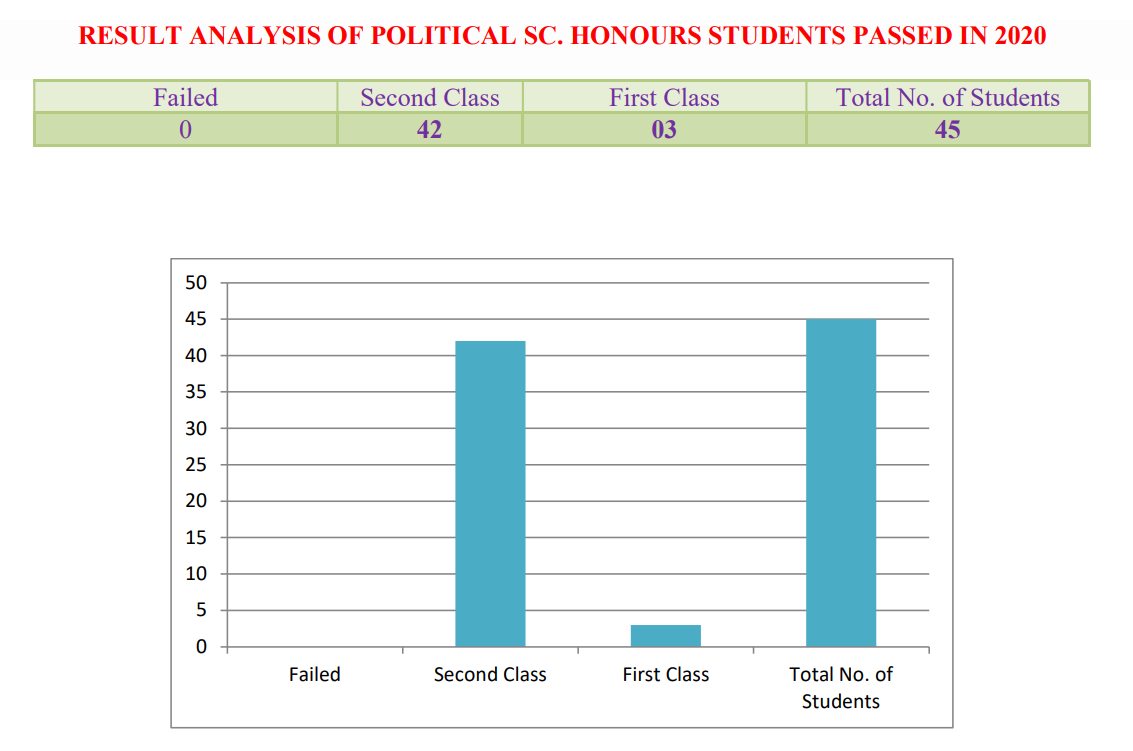
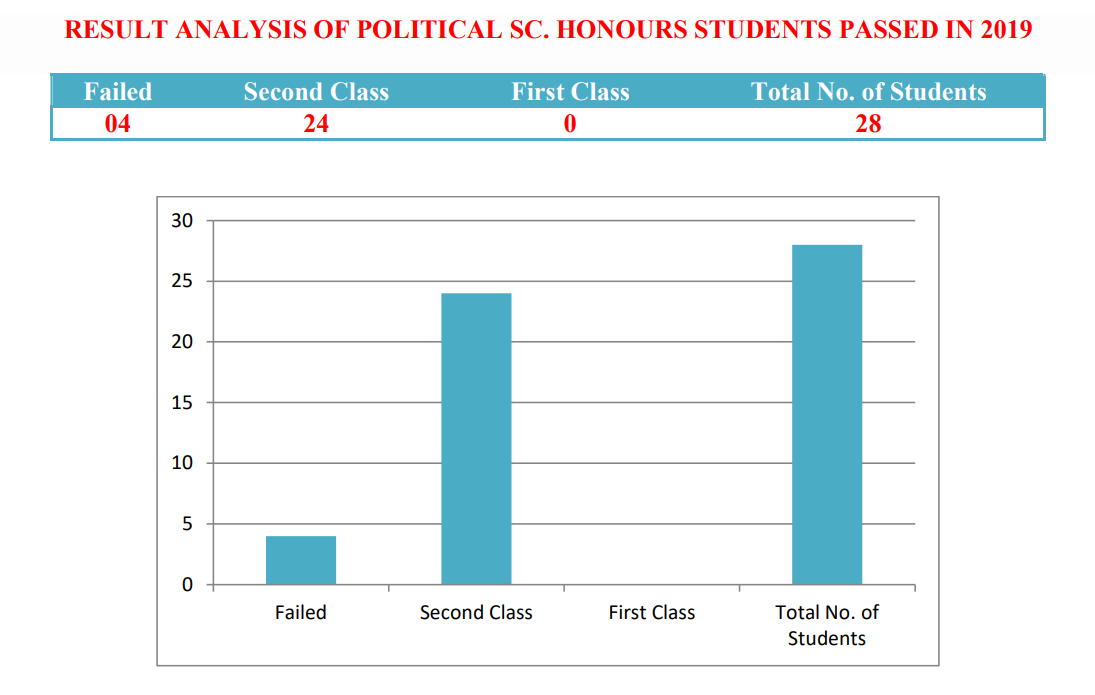
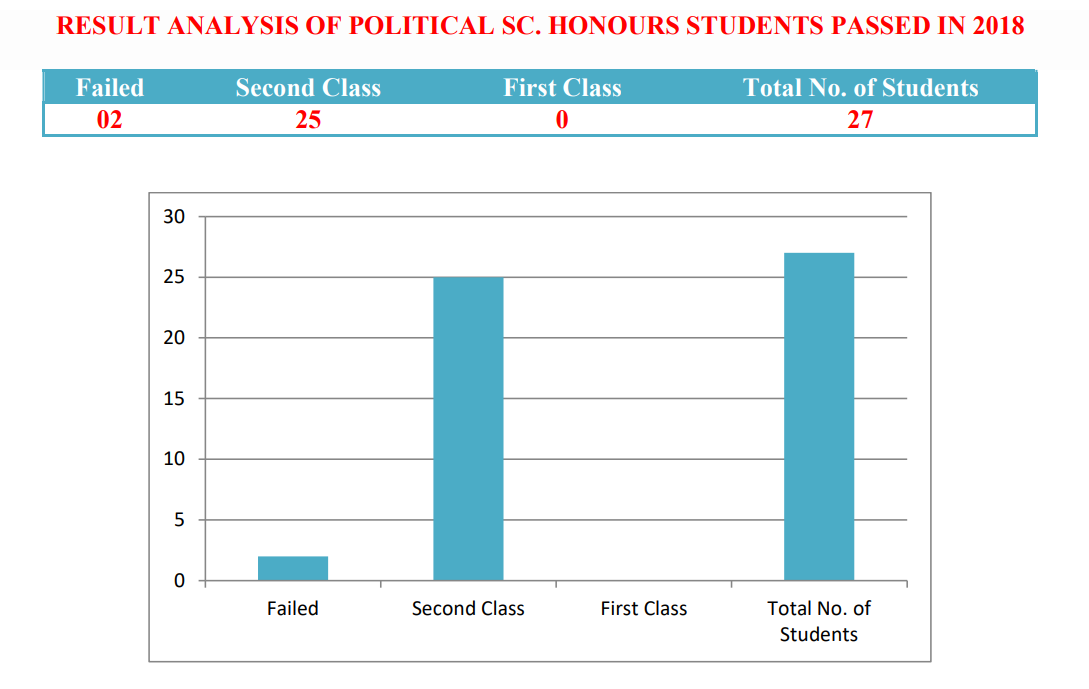
Online answer scripts submission
Honours & Programme Course. Examination,2022
5th Semester
| Subject & Semester | Paper | Category | Link |
| Pol.Sc- 5th Sem | CC & DSE | Hons/CC | https://forms.gle/MYwAM3kFG1GViiDS6 |
| Subject & Semester | Paper | Category | Links |
|
Pol.Sc- 5th Sem |
DSE | Programme | https://forms.gle/y7DQQiD95P9jJ1ib6 |
| GE | Programme | https://forms.gle/opqbC459JZHRoiKq9 | |
| SEC | Programme | https://forms.gle/jp5pjXu9RXBkfWHP8 |
3rd Semester
| Subject & Semester | Paper | Category | Link |
| Pol.Sc- 3rd Sem | CC & SEC | Hons/CC | https://forms.gle/SeFAh7c7unKWHikC8 |
| Subject & Semester | Paper | Category | Link |
| Pol.Sc- 3rd Sem | GE-2 | Hons/CC | https://forms.gle/grgi9LR2xRDF65FY8 |
| Subject & Semester | Paper | Category | Links |
|
Pol.Sc- 3rd Sem |
DSC | Programme | https://forms.gle/TuL2VHaRckexo1Fe7 |
| SEC | Programme | https://forms.gle/mvdKWb5mGVFn8cj28 |
1st Semester
| Subject & Semester | Paper | Category | Link |
| Pol.Sc- 1st Sem | CC | Hons/CC | https://forms.gle/BgyKMwBaZhYW4P3M7 |
>
| Subject & Semester | Paper | Category | Link |
| Pol.Sc- 1st Sem | DSC | Programme | https://forms.gle/Bho3vEWVUzY1Dj9e9 |
| Subject & Semester | Paper | Category | Link |
| Pol.Sc- 1st Sem | GE-1 | Hons/CC | https://forms.gle/mfc4seuhcRntVdo28 |